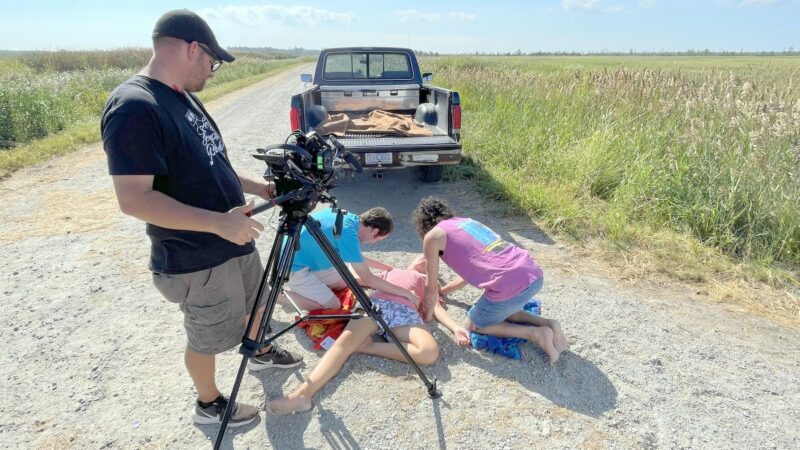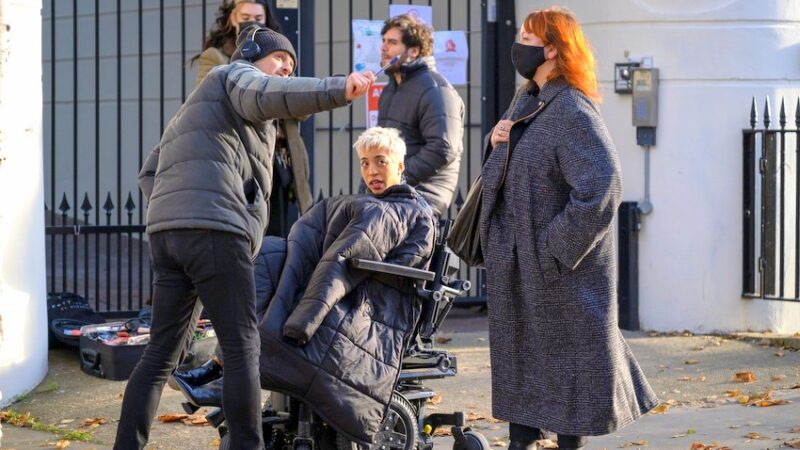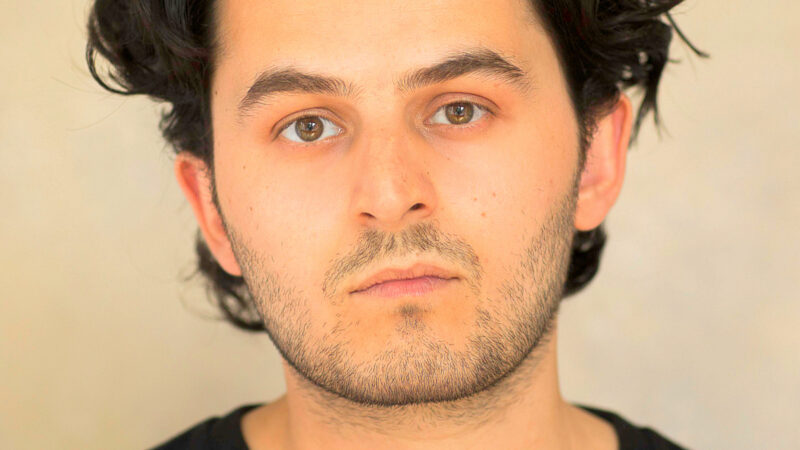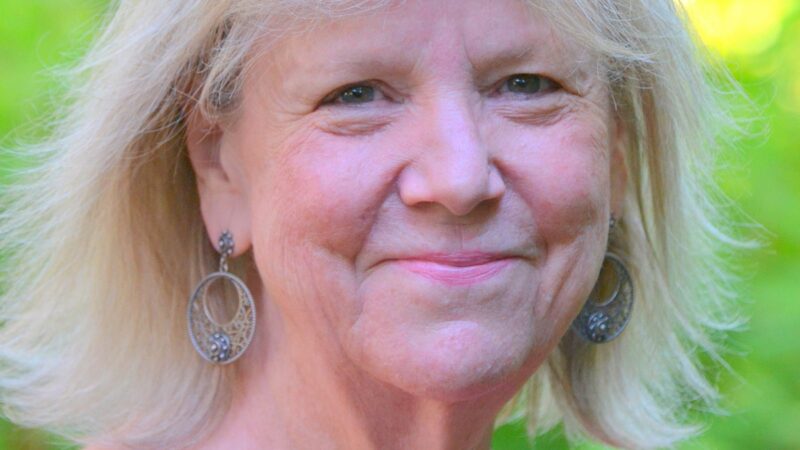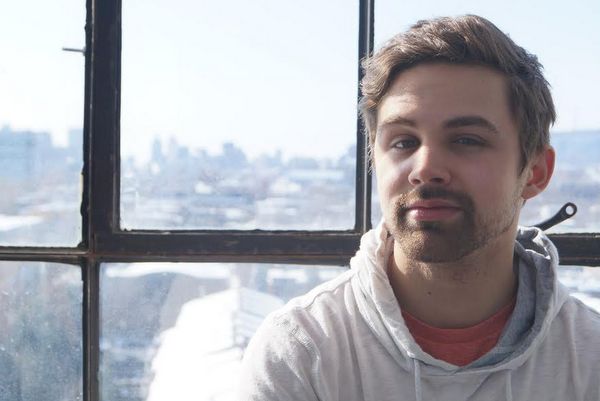
I think my first experience with filmmaking I was about 10 years old. We were at my grandparent’s cottage. Someone — I think it was my uncle — had an old video camera and for some reason thought it was a good idea to let my cousins and I play with it. And so that’s when we began the production of ”CSI Birch Lake” and it’s many sequels. We had so much fun. I knew right away that I wanted to make films for a living. The following year my parents got me my own handycam for christmas.
It’s here!!! LIke and share https://t.co/ejYx4Tgpbs #Nightlight
— MarcAndré Morissette (@MAMorissette) February 21, 2017
Did you study what you do
Yes I’ve just graduated from University of Montreal in film studies. The degree was very theory oriented. We analyzed more movies than humanly possible. And actually I think that was a good thing, it’s important to learn how to read a film before making one
What is your filmmaking process
I feel like this question is more actor oriented whereas I’m a writer-director. I would have to say that the technique the actor uses is more up to him, there are many different techniques but I haven’t yet had the chance to work with enough actors to really see the difference with these techniques. I’ve mostly worked with actors who come from theatre and they seem to have their own technique.
20:15 – FILM – TRAILER from marc-andré morissette on Vimeo.
Tell us about the work you have directed
Professionally I’ve directed but one short film ”20:15” it was an amazing learning experience and I plan on further my learning and directing many more films. We’ve already got a short lined up for this winter and a feature for next summer. What I can say about directing is that it’s not an easy job. Communication is key. I cannot stress it enough. The whole point of directing is to put on screen what you’ve envisioned in your head. That means you must tell everyone what it is your vision is. Share it. Communicate. But remember communication is a two-way street. That’s one of the most important things I realized while we were preparing 20:15. I wanted to stay opened to others’ suggestions. See the movie the way they see it. So I made sure that, before sharing my vision, I asked everyone involved how they pictured it. Then told them my views and their whys. The director must listen to his cast and crew, but it is also his job to make the decisions. By involving everyone in the creative process we were able to come up with new ideas for the film and were also able to weed out the bad ones.
Do you take courses to improve your craft
No. But I do try to get as much on set experience as possible. When I’m not the one directing I still love being on set to observe how others work. I also find that watching ”making of” videos can offer great insight into the world of filmmaking. In my free time I also do a lot of reading on the subject, articles on filmmaking interviews with filmmakers, certain YouTube channels like Film Riot or Rocket Jump Film School are also amazing for aspiring filmmakers.
#Nightlight pic.twitter.com/UqsTscJGiq
— MarcAndré Morissette (@MAMorissette) February 8, 2017
How do you combine directing and writing
I love directing my own scripts. For me writing the script is the first step to communicating my vision to the rest of the crew. Which is why I do not simply write what happens in the script I also write the mood I want. I write the script using the same words I would use if I were speaking to them. Also, when you direct a script you have yourself written, you know your story inside and out which makes it easier to change scenes when your running short on time or when your budget is thinning out, or whenever Murphy shows up with that damn law of his! When you know your story, you know what you can or cannot cut out.
How did you get into the film business
I don’t think I can say I’m really in the film business just yet. I’m getting there by the indie route. My first short was entirely self-funded and I will be producing my first feature myself. These days, with technology being more and more affordable and the internet connecting the indie community I believe everyone has a shot at making it big.
How do you turn an idea into a screenplay
I guess it depends on the initial idea. Wether it’s a theme or a concept you want to explore, a character you want to learn more about or a scene you would like to see on screen. You have to start by asking yourself questions ”Why did this happen?” ”What happened before?” ”What will happen next?” ”Who is this man?” Once you begin answering these questions a story will start to form in your head. All you need to do now is decide where this story begins and where it ends. Once you’ve figured that out you can start writing.
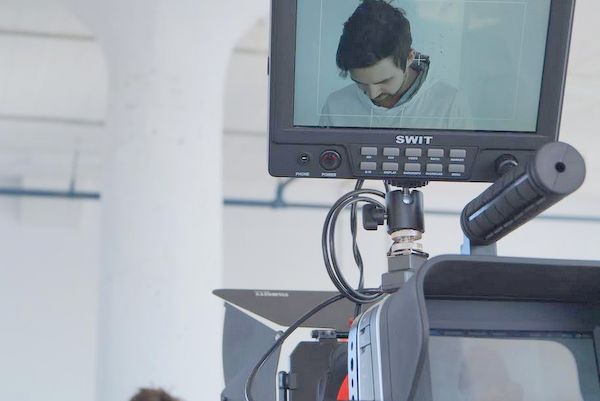
Explain your writing process
My writing process is different from one film to another. On some projects I’ve used cue cards, on other’s I’ve used Seth Worley’s clock, Sometimes I use graphs or timelines anything to help me clear up all the thoughts in my head. One thing that stays though, from one project to another is when it comes to the actual writing. First off, I don’t start writing until I know how the story is going to end then I break down my film into sections, sometimes I break it down following the 3 acts sometimes it’s just breaking it down between all the major plot points, whatever helps lighten the load because my writing technique can be quite demanding. I’ll start by writing a ”vomit”. That’s when you write the first thing that comes to mind and you just don’t stop. Once that’s done I throw it out. And start over, only this time I know where everything is heading. Usually I end up with something I like around my 5th rewrite or so. And I do this with each section of the film until I have a complete screenplay.
What writing tip or idea can you give young writers
Before you start writing up a scene ask yourself ” Is this scene necessary?” ”What does this scene bring to the story?” ”What does it bring on an emotional level?” ”What’s the worst that could happen if I get rid of it?” If your scene walks out of this interrogation unscathed then write it! If it doesn’t, throw it out, it will only harm your movie in the end.
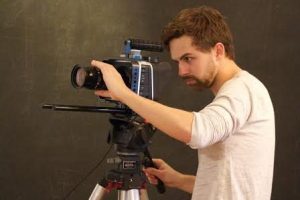 What do you want to change about the film business
What do you want to change about the film business
Less business and more film. We need to encourage creativity in Hollywood. I find there are too many sequels and reboots and remakes. Spinoffs on the other hand I don’t mind as much, because you always get a new and different story only with characters you already know and love. Nevertheless I still believe we should encourage more original movies.
What do you want to be remembered for
I’d like to be remembered as someone who was great at making movies because I loved making them and because I was having fun and was fun to work with.
INTERVIEWS
In Conversation with Michael Oblowitz Director of Confidential Informant
Confidential Informant stars Mel Gibson, Dominic Purcell, and Kate Bosworth
more interviews




